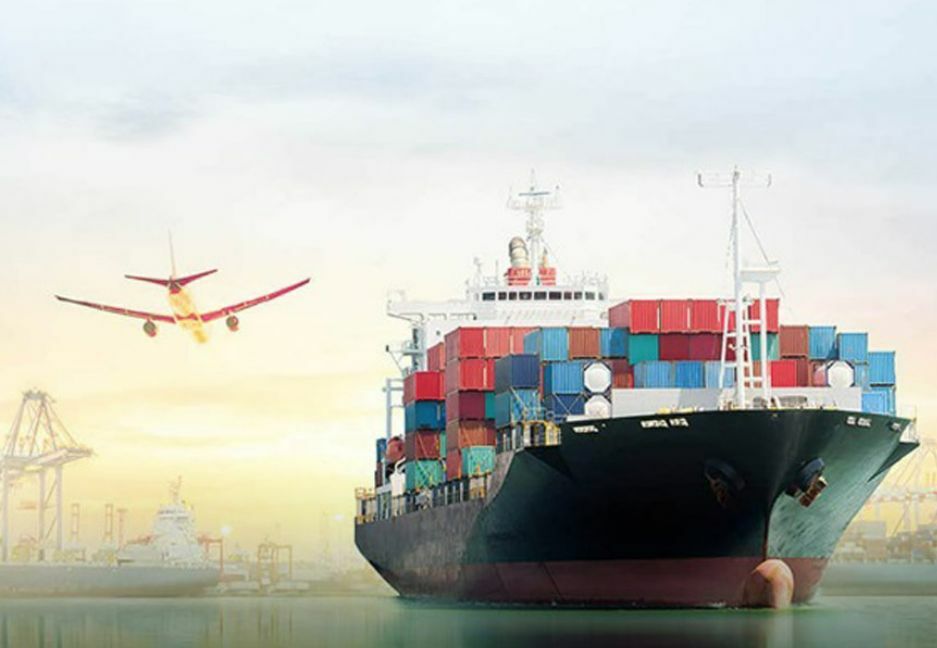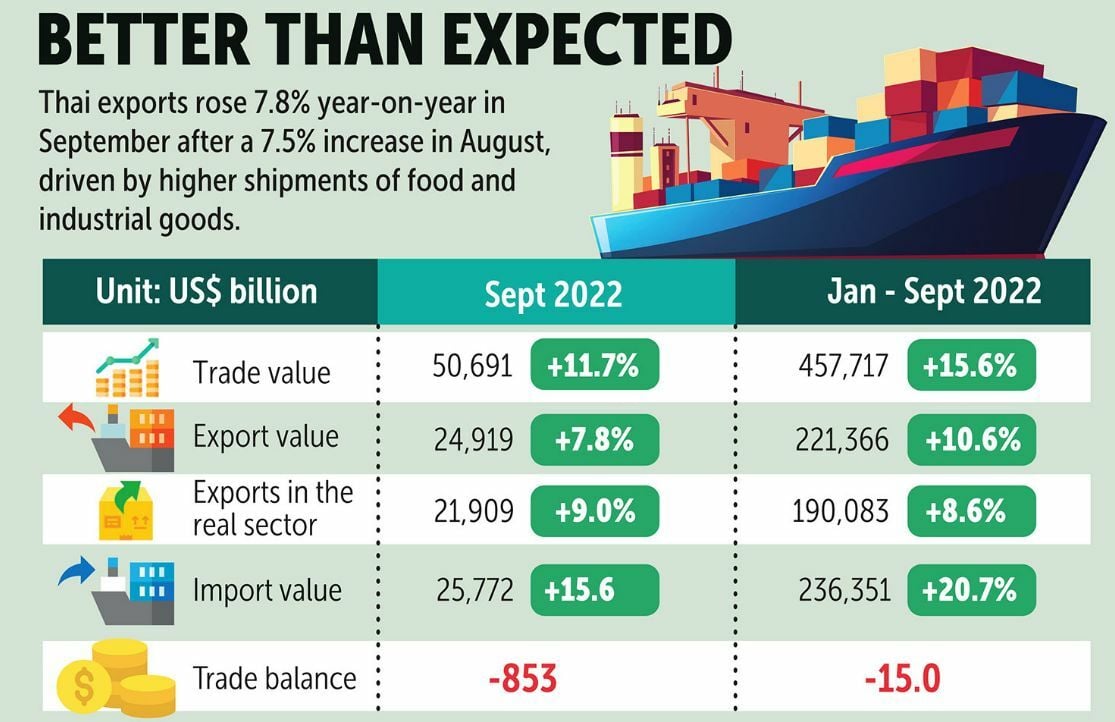Sunny-side up: Thai exports set to crack 3.6% growth in 2023

Positive prospects are forecasted for Thai exports next year, with an anticipated growth rate of 3.6%. This rebound follows a projected 2% drop this year, according to a recent report by the University of the Thai Chamber of Commerce (UTCC).
UTCC’s president, Thanavath Phonvichai, attributes this optimistic projection to several factors including lower interest rates and easing inflation globally, which are expected to increase the demand for goods. Furthermore, the Thai government is planning to enact a series of policies aimed at boosting exports.
Thanavath revealed these include exploiting soft power to add value to consignments, addressing border trade impediments, and maximising the benefits of free trade agreements.
“Thai exports are recovering in the fourth quarter of this year, showing gradual and consistent growth. The recovery is expected to become clearer by the middle of next year, and we believe exports will contribute significantly to the Thai economy next year.”
He further suggests that outbound shipments could reach 300 billion baht next year if the sector grows by the projected 3.6%. Thanavath points out that the primary stimulus scheme for next year is the planned distribution of digital wallets. Consequently, the UTCC foresees the Thai economy growing by 4.5% to 5% next year.
However, Thanavath warns of potential risks for the export sector next year, mainly due to the uncertain global economic climate. Both the International Monetary Fund (IMF) and the Organisation for Economic Co-operation and Development (OECD) predict a deceleration in the global economy next year. The IMF forecasts a drop from 3% this year to 2.9% next year, while the OECD expects a descent from 3% to 2.7%.

While the US economy continues to struggle with high-interest rates and increasing unemployment, China grapples with issues stemming from its real estate sector, weak consumer spending, and diminished private sector confidence, particularly regarding investments.
Thanavath expects the baht to strengthen, particularly with the anticipated reduction in US interest rates next year. Increased tourism revenue may also contribute to a stronger baht compared to trading partners, affecting price competitiveness and hiking production costs and goods prices.
Thanavath believes the Israel-Hamas conflict will have a limited impact on Thai exports. However, he advises close monitoring of the ongoing Russia-Ukraine conflict as well as the escalating trade, technology, and supply chain rivalry between the US and China, reported Bangkok Post.
The impact of the Israel-Hamas conflict on Thai exports is estimated to range from a -0.1% to a -1.7% contraction.
The UTCC evaluated the potential implications of the Middle East conflict on Thai exports under three scenarios. In the event of a prolonged conflict, a 30% likelihood, the impact on export value is projected to be US$370 million, leading to a 0.1% contraction.
If a prolonged conflict results in the closure of transport routes, a 10% possibility, the impact is estimated at US$850 million, causing a 0.3% contraction. If the conflict expands across the Middle East, a 5% likelihood, the impact is estimated at US$4.77 billion, leading to a 1.7% contraction, as per the UTCC.
Follow more of The Thaiger’s latest stories on our new Facebook page HERE.
Latest Thailand News
Follow The Thaiger on Google News:


























